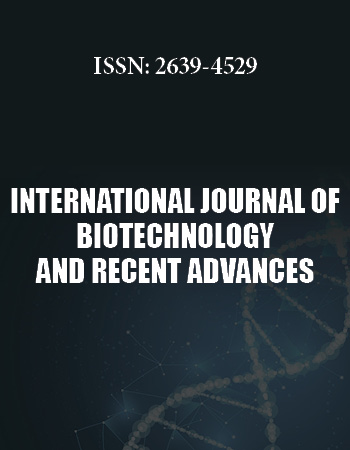International Biotechnology and Research Conference
April 25-27, 2018 Rome, Italy
Potential of Indigenous Lactococci as Starter Cultures in Dairy Industry
Biotechnical faculty, University of Montenegro, Montenegro
The diversity of lactic acid bacteria in traditional dairy products represents great potential in biotechnology. In order to standardize indigenous products, the basic requirement is the application of the determined indigenous lactic acid bacteria as starter cultures affecting their specific characteristics by performing fermentation and influencing the ripening process. Starter microorganisms produce lactic acid, which is very important during the coagulation and texturizing of the curd cheese. Production of volatile compounds (e.g. diacetyl and acetaldehyde) contribute to the flavor of these dairy products. Starter culture may posses a proteolytic and lipolytic activity that may be desirable, especially during the maturation of some types of cheese. They also produce bacteriocins, which prevents the growth of pathogens and many spoilage microorganisms. In the process od fermentation of cheese usually participate bacteria of the genus Lactococcus – Lc. lactis ssp. lactis, Lc. lactis ssp. cremoris and homofermentative lactobacilli. Lactococcus lactis species is one of the most important of lactic acid bacteria that are used in the dairy industry. The major functions of this species in dairy fermentation are the production of lactic acid from lactose, hydrolysis of casein and citric acid fermentation. Their metabolic end products and enzymes directly or indirectly have significant influence in determining the texture and flavour of the final products. The utilization of lactococci isolated from indigenous fermented milk products would lead to potential starter cultures with the necessary properties for typical local products that are well accepted by the local population. Also, the use of such starter cultures would allow the production of cheese with designated geographical origin.
Biography:
Dr. Mirjana Bojanic Rasovic began to work in 1994 at Biotechnical Institute, now Biotecnical faculty in Podgorica. From 2012, she is a senior research associate in the field of Animal hygiene and Preventive Diseases and Microbiology.
For two terms (2003 to 2007), she was president of the Society of Microbiologists of Montenegro for which time she organized several scientific meetings and lectures. She has participated in the work of a number of domestic and foreign scientific and professional conferences. As author or co-author, about 80 scientific and professional papers have been published. She was the head of national projects “Influence of zoohygienic conditions on the appearance of mastitis in high dairy cows”, 2001-2003., “Examination of the spread of bovine infections with Mycoplasma bovis in the Montenegro”,Isolation and characterization of indigenous lactic acid bacteria for the production of specific cheeses in Montenegro”, (2009-2012).
Dr. Mirjana Bojanic Rasovic is Member of following committees: The Veterinary Chamber of Montenegro, Commission for Accreditation of the Accreditation Body of Montenegro, Technical Committee for Laboratories of the Accreditation Body of Montenegro, Sectoral Commission for Agriculture, Food Processing, Committee for Agriculture and Forestry of the Montenegrin Academy of Science and Arts, Commission of the Ministry of Agriculture and Rural Development for professional exam for graduate veterinarians.


